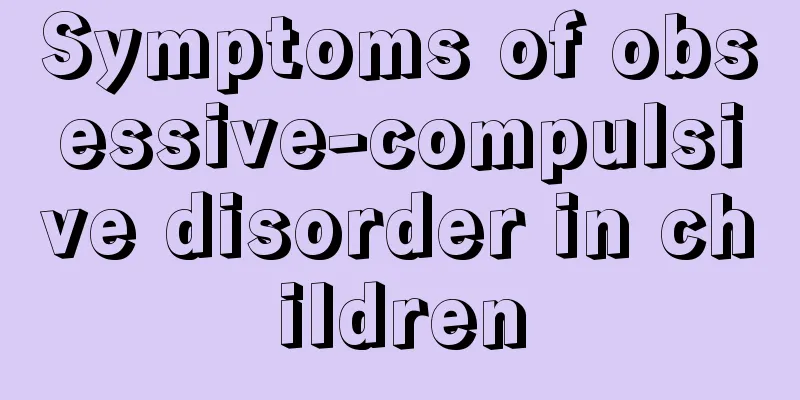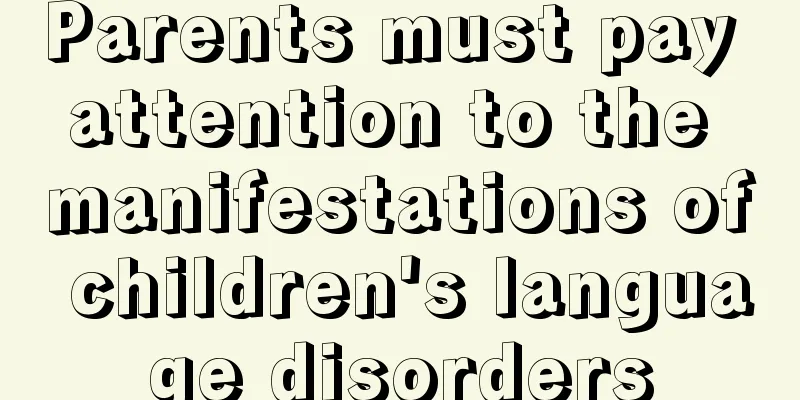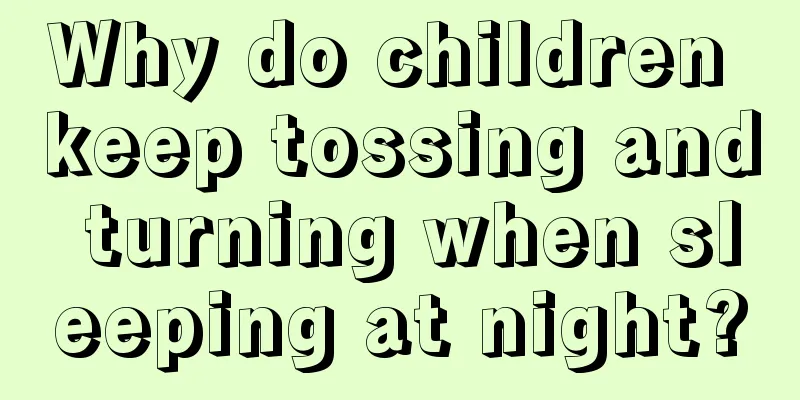Symptoms of obsessive-compulsive disorder in children

|
In the future, many parents will find that their babies seem to have some symptoms of obsessive-compulsive disorder recently. For example, they suddenly become very obsessed with one thing, their things cannot be moved, they put their things in order every day, and they will get angry when they are broken by others, and they will force themselves to tidy up. There are many manifestations of obsessive-compulsive disorder in children. If it is confirmed to be obsessive-compulsive disorder, it should be improved slowly. What are the symptoms of obsessive compulsive disorder in children? 1. Childhood trauma that is easily overlooked may become a factor that triggers obsessive-compulsive disorder symptoms in the future. Children have limited tolerance for trauma and stimulation, and they may feel insecure and nervous after experiencing trauma. Once they encounter troubles or pressure in some aspects, the tension and insecurity hidden deep in their hearts are aroused, and they fall into inner conflicts and form difficult-to-resolve knots, which often turn into some kind of compulsive ideas or behaviors. 2. People with obsessive-compulsive disorder often have personality traits such as being too serious about things, considering everything over and over again, wanting to understand even some meaningless little things, and paying too much attention to details since childhood. Although they do not show any signs of illness when they are young, if they encounter certain physical illnesses or mental stimulation, such as bad verbal suggestions from people around them, these seemingly insignificant details will cause this type of people to develop typical obsessive-compulsive disorder symptoms based on their personality. 3. Some people call this condition that induces illness the trigger phenomenon, that is, mental stimulation is like pulling the trigger of a pistol that has already been loaded with bullets, firing the bullet. In other words, the contingency of suffering from obsessive-compulsive disorder exists in the inevitability of bad personality. 4. Personality traits, psychological characteristics and related experiences in childhood may be factors that contribute to the onset of obsessive-compulsive disorder in adulthood. Therefore, parents should pay attention to understand the symptoms that indicate obsessive-compulsive disorder in childhood, and master the relevant control and regulation knowledge to resolve them, so as to help their children grow up to be physically and mentally healthy people in the future. |
<<: Why do children bite their tongues?
>>: Children's nails fall off and new nails grow
Recommend
Can Kuding Tea Cure Baby Eczema?
Kuding tea is a natural health tea. Many people d...
What should I do if my child coughs and spits white phlegm?
Many children have symptoms of coughing, especial...
What to do if your child has a curved spine
As the saying goes, there is nothing that cannot ...
What to do if children have bone necrosis?
Bone necrosis in children usually refers to the f...
Can children eat bird's nest when they have a cold?
The efficacy of bird's nest is particularly o...
What should I do if my baby always bites his lower lip?
Some babies have abnormal phenomena, especially s...
White spots on baby's lips?
Many mothers will find that after feeding their b...
The reason why babies poop every few days
In fact, babies have not yet fully adapted to lif...
35-month-old baby development indicators
The characteristics of a child's physical dev...
Factors that cause sleepiness in three-month-old babies
Newly born babies need careful care and attentive...
Why do six-year-olds lose their teeth?
Some newborns will grow teeth slowly, and then re...
What causes children’s tooth mobility?
Mothers are always concerned about their children...
How long does it take for baby's keratitis to heal?
Keratitis is a very common eye disease, usually c...
What should I do if my child often has a fever?
Fever is a normal physiological phenomenon, but i...
What should I do if there is a big gap between my child’s front teeth?
Parents need to pay special attention when childr...









